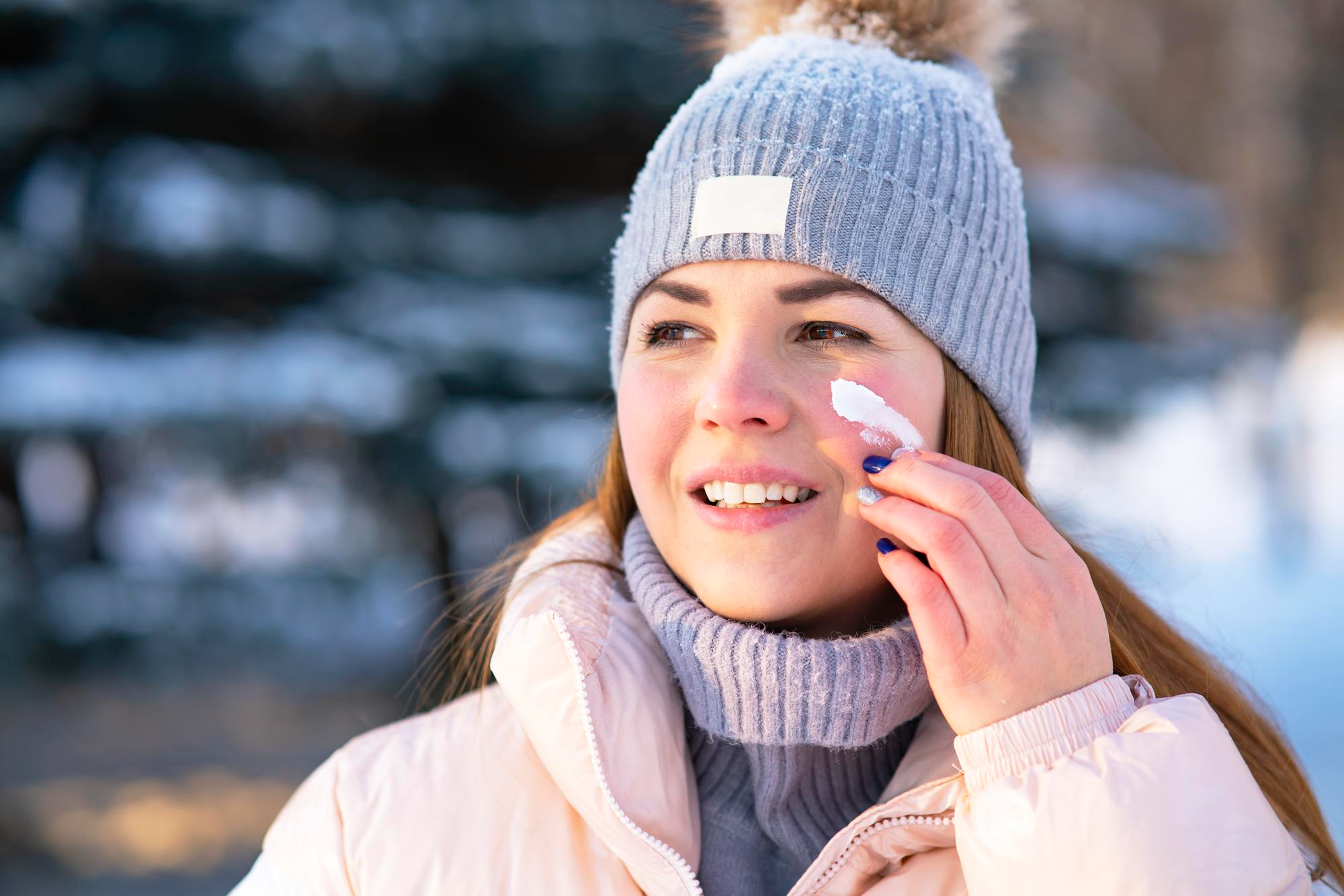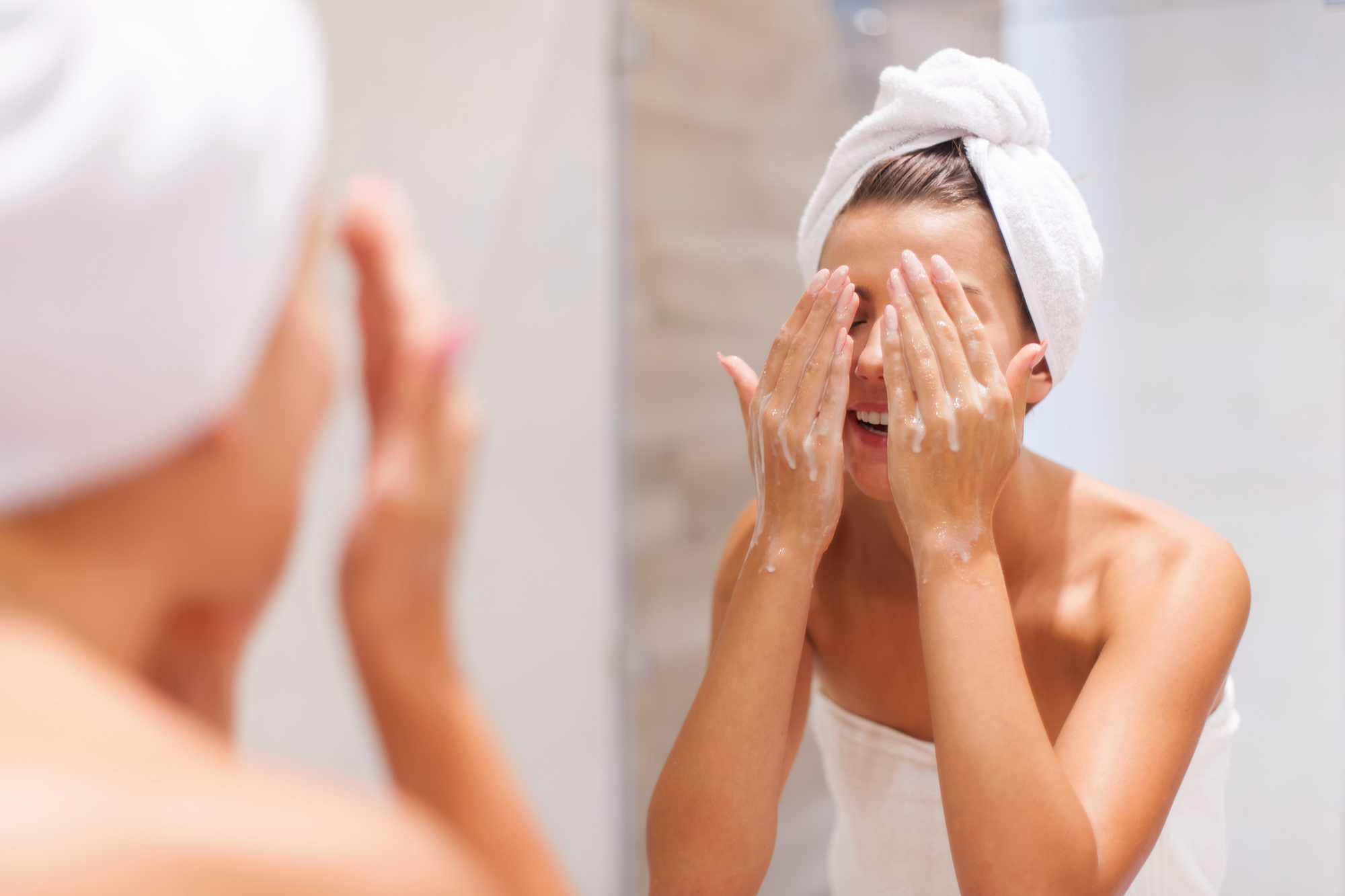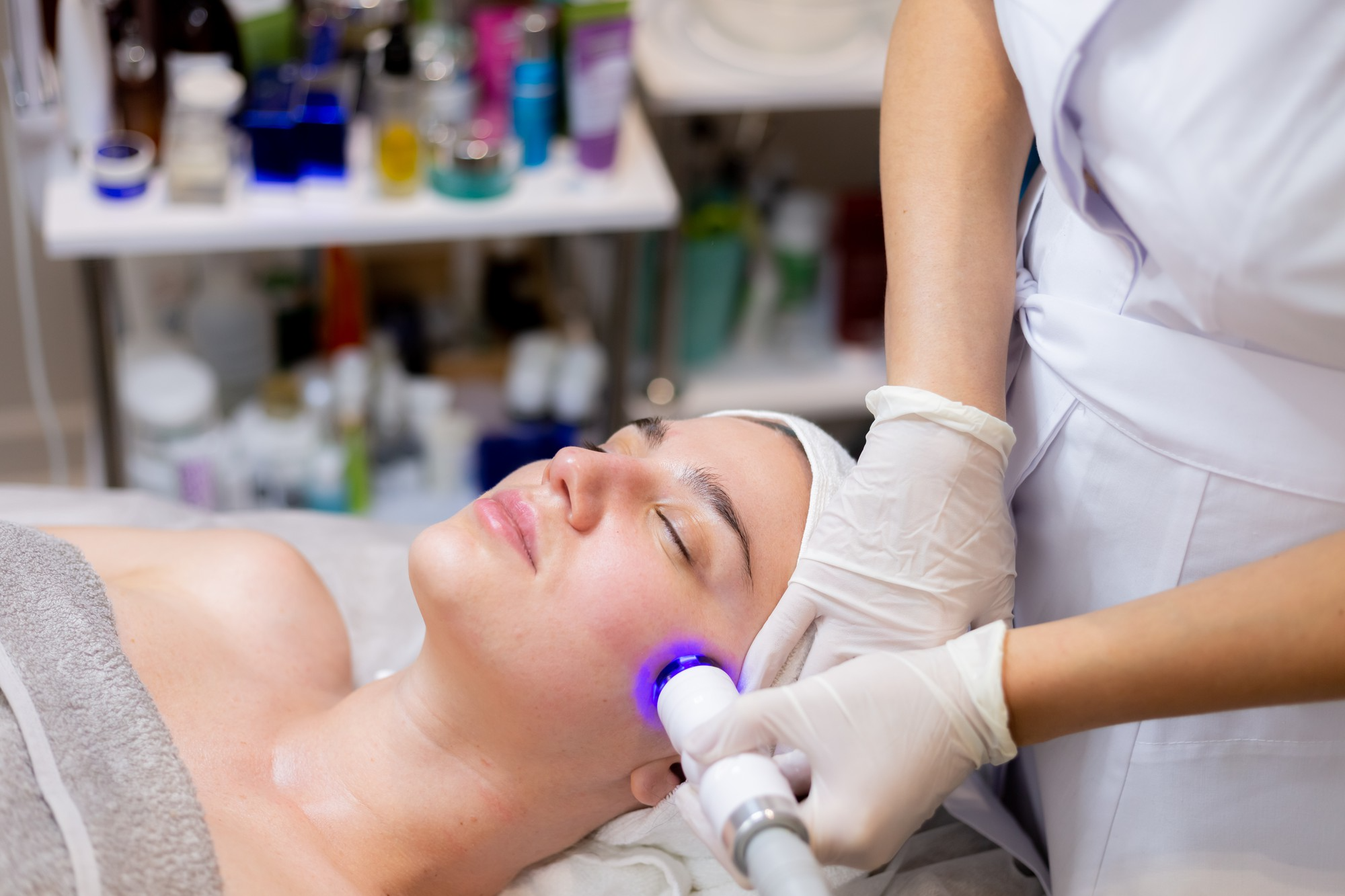
A woman applying sunscreen in winter.
Winter is beautiful with its cozy sweaters, warm drinks and crisp air. For your skin though, it's mostly the most challenging time of the year. Cold winds, low humidity and long hot showers can all take their toll on your skin by stripping it of its natural oils.
If ever you wondered why your skin feels rough, flaky or a touch more sensitive come winter, that's because your skin barrier is struggling. This blog will walk you through what the skin barrier does, how winter damages it and the exact steps you can take to protect and repair it throughout the season.
Your skin barrier or stratum corneum, consists of the outermost layer of the skin which is a thin but powerful shield made up of lipids, ceramides and skin cells.
Think of it like a wall:
It works mainly in terms of locking in moisture and keeping irritants, pollutants and bacteria out. When it's healthy, your skin feels soft, hydrated and smooth but when compromised, such as during winter, dryness, itching and inflammation take over.
Winter weather is tough on your skin, especially in India, where humidity drops incredibly in the north. Even mild winters can dehydrate the skin quickly. Here’s what happens:
The result is a weakened skin barrier that can't protect you from the cold and that shows up as redness, dullness or even breakouts.
If your skin feels uncomfortable during winter, check for the following signs:
If two or more apply, your barrier needs urgent attention.
Winter skin does not need aggressive cleansing. Avoid foaming or exfoliating facial washes. Instead use a mild and creamy cleanser containing active hydrating ingredients such as:

A woman gently cleansing her face.
Hydration is the secret weapon of winter skincare. After cleansing, use a hydrating serum or essence containing:
Winter moisturizers should be richer compared to your summer ones. Opt for creams or balms that contain:
For very dry skin, apply a small layer of facial oil like jojoba or marula oil at night for extra nourishment.
Yes, sunscreen in winter is not an option. UV is present throughout the year and degrades collagen and lipids in skin. Apply a broad-spectrum SPF 30 or higher, one with added hydration agents like Vitamin E or niacinamide.
Even with daily care, your skin may need an extra boost. Add these weekly steps to your routine:
Hydrating Masks: Use sheet masks or creamy masks with ceramides or aloe once or twice a week.
Gentle Exfoliation: Use lactic acid or enzyme-based exfoliants every 10-14 days to remove flaky skin (avoid strong acids).
Overnight Repair Creams: Apply thick, barrier-focused creams before bed for overnight recovery.
Even the best products can’t help if you’re unknowingly damaging your skin.
Avoid these common mistakes:
If your skin remains dry or irritated despite a good routine, professional care can help. Dermatologists often recommend:
These treatments strengthen your barrier without harsh exfoliation.

A woman receiving LED light therapy facial treatment.
Your skin renews itself roughly every 28 days. During winter, this process slows down due to lack of moisture and increased stress on the barrier. Supporting it means helping lipids and ceramides rebuild.
Studies show that consistent use of ceramide-rich creams can restore up to 80% of barrier function within four weeks, proving that even winter skin can be resilient when properly nourished.
Even oily skin loses water. It just produces excess sebum to compensate. Use a lightweight gel-cream instead of skipping moisturizer.
Hydration must come from both inside and outside. Combine water intake with moisturizers and hydrating serums.
UV rays are always present. Protecting your barrier from UV damage is essential all year.
Your skin barrier is your best defense against the harshness of winter. With a gentle, moisture-rich routine and a few mindful habits, you'll be able to keep your skin soft, hydrated and healthy during the coldest months. Remember, the goal is to not overload the skin with products but protect, repair and maintain balance.
We offer expert care across key specialties, including Medicine, Cardiology, Orthopaedics, ENT, Gynaecology, and more—delivering trusted treatment under one roof.
Prakash Hospital Pvt. Ltd. is a 100 bedded NABH NABL accredited multispecialty hospital along with a center of trauma and orthopedics. We are in the service of society since 2001.
OUR SPECIALITIES
Contact Us
D – 12A, 12B, Sector-33, G. B. Nagar, Noida, Uttar Pradesh 201301
+91-8826000033

© 2026 All rights reserved.
Designed and Developed by Zarle Infotech